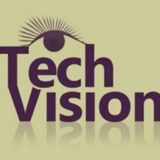The most modern way as of 2024 to adapt work for blind or low vision students is using programs like MathKicker.ai, WORD Immersive Reader and Google Docs, follow these steps to ensure full accessibility for both English, Math and other content:
- Use MathKicker.ai for Math Content:
- Upload or paste math equations into MathKicker.ai. This tool converts complex math problems into formats accessible for screen readers like JAWS or NVDA.
- Once converted, paste the accessible math text into Google Docs or other word processing platforms for students to use with their screen readers.
- Convert Images to Descriptive Text in Google Docs:
- When images contain important information, use Google Docs’ built-in alt text feature. Right-click the image, select “Alt text,” and enter a detailed description of the image, focusing on its relevance to the content.
- For math-specific images (e.g., graphs, equations), describe the visual elements and provide the corresponding math in text form or, if needed, through MathKicker.ai to ensure clarity for students using auditory or Braille output.
How to Adapt Work and Why
3. Leverage Google Docs Collaboration Features:
- Share Google Docs with students, allowing them to access the document using their preferred screen reader.
- Enable real-time collaboration by ensuring that students can work in the document with peers or teachers, making the experience inclusive.
4. Use Heading and Structure Tools:
- Make sure to structure documents with proper headings and styles in Google Docs to aid screen readers in navigating the document efficiently.
By combining MathKicker.ai for math accessibility and using Google Docs to convert visual content into descriptive text, blind or low vision students can access both English and math content effectively.
There are many ways to adapt work for inclusion. Inaccessible work creates barriers—choose the right tools, because together we achieve more than apart.
Here are a few ways to do just that.
Adapting work using Jaws OCR-how to tell if work is image or text in PDF
The fastest way to adapt inaccessible PDF with graphics when you run out of time
How to adapt work for low vision–continue on with skills
Adapt work for Low Vision using shapes for Math or Chemistry
How to adapt work for blind/low vision students
Access Technology for Low Vision-See your computer screen better
Tricks for students to adapt last minute work fast –right in class
How to adapt More work in general
Let us know how we can help you!
